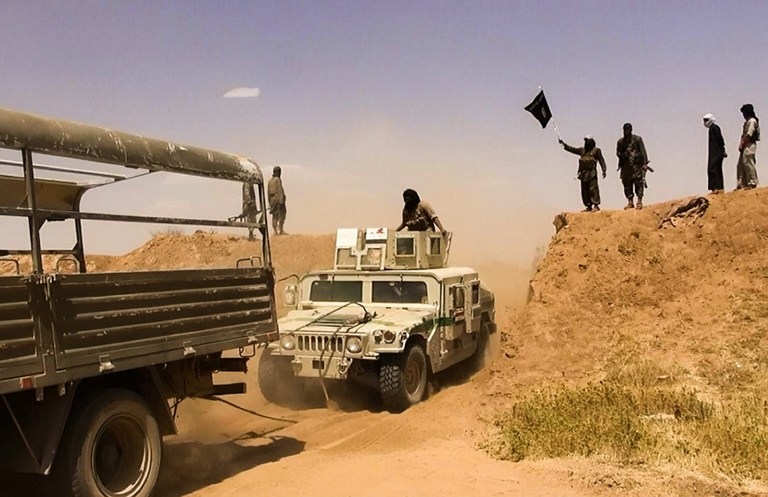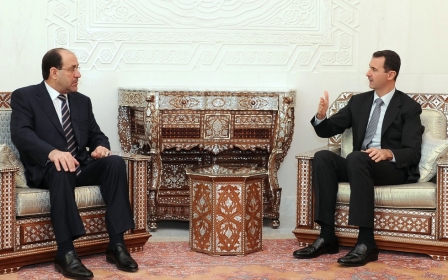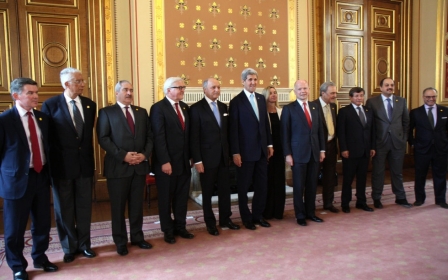Obama seeks $500 mn for Syrian rebels as ISIL advances

The White House has asked lawmakers for $500 million to train and equip vetted Syrian rebels, in what would be a significant escalation of US involvement in a conflict that has spilled into Iraq.
Following several signals in recent weeks by President Barack Obama's administration - and months of pressure from lawmakers like Senator John McCain - the White House said Thursday it intends to "ramp up US support to the moderate Syrian opposition."
The request is part of a $1.5 billion Regional Stabilization Initiative to bolster stability in Syrian neighbours Iraq, Jordan, Lebanon and Turkey, and to support communities hosting refugees.
In a clear acknowledgement that Syria and Iraq face a common threat, Iraqi Prime Minister Nuri al-Maliki earlier "welcomed" strikes by Syria's air force on the Syrian side of the Al-Qaim border crossing, controlled by Islamic State of Iraq and the Levant (ISIL) fighters.
The proposed US funding would serve "vetted elements of the Syrian armed opposition to help defend the Syrian people, stabilize areas under opposition control, facilitate the provision of essential services, counter terrorist threats and promote conditions for a negotiated settlement," the White House said in a statement.
But Damascus ally Moscow lashed out at the move, saying "there are better uses for these 500 million dollars."
The Americans "are moving things in their own direction, they keep the fire burning instead of doing something political," Russian ambassador to the United Nations Vitaly Churkin told reporters during a reception at the Russian mission.
The proposal was part of the $65.8 billion overseas contingency operations - the officials term that the Obama administration uses for what was called the War on Terror under George W. Bush - request to Congress for fiscal year 2015, which begins 1 October. The bulk of that amount, $58.6 billion, was allocated to the Defense Department.
In a separate statement, National Security Council spokeswoman Caitlin Hayden said the funding "would build on the administration's longstanding efforts to empower the moderate Syrian opposition" and allow the Pentagon to increase its support to vetted armed rebels.
Next steps for US aid
Washington has been studying options for providing additional assistance to rebel forces beyond the existing aid, which includes mainly "non-lethal" support.
While US officials normally publicly refuse to comment on details of training for opposition groups, Obama's National Security Advisor Susan Rice acknowledged early this month that the Pentagon was providing "lethal and non-lethal support" to Syrian rebels.
Included in the latest request was a $5 billion Counterterrorism Partnerships Fund helping build counterterrorism capacity in allies from South Asia to Africa's Sahel region.
If approved by Congress, the funds would allow the United States to train and equip "moderate" rebels, "ultimately helping the Syrian people defend themselves against attacks by the Assad regime and weakening extremists like ISIL, who have found safe haven amid the ongoing conflict," Pentagon spokesman Rear Admiral John Kirby said.
The request comes at an extraordinarily sensitive time in the Middle East, with Sunni extremists in Iraq who are threatening to overtake Baghdad joining forces with others in Syria.
Observers say members of Al-Qaeda's franchise in Syria, Al-Nusra Front, pledged loyalty to ISIL, giving it control over both sides of the frontier.
No US combat troops
Despite the Sunni insurgent offensive threatening to tear Iraq apart, Obama repeated his pledge to avoid sending US combat troops back to that country.
"We've got to pay attention to the threats that are emanating from the chaos in the Middle East, although I want to be very clear: We're not sending combat troops into Iraq," Obama said.
"They're going to have to contribute to solving their own problems here, although we'll protect our people and we'll make sure that we're going after terrorists who could do us harm."
The Syria initiative received tepid support from at least one Republican lawmaker, Senator Marco Rubio, who has been a fierce critic of the Obama administration's "rudderless foreign policy."
"This is long overdue and the US must lead, with European and regional partners, in helping to develop a cadre of fighters who will alienate ISIL and Al-Nusra Islamic extremists, and take the fight directly to Bashar al-Assad," Rubio said.
Senate Armed Services Committee Chairman Carl Levin, a Democrat, said a similar funding request in the defense authorization bill received broad bipartisan support in his committee.
"In light of recent events in Iraq and Syria, this is appropriate spending," Levin said.
Rime Allaf, adivisor to Ahmed Jarba, the president of the National Coalition of Syrian Revolution and Opposition Forces, tweeted that request is "very little, very late".
New MEE newsletter: Jerusalem Dispatch
Sign up to get the latest insights and analysis on Israel-Palestine, alongside Turkey Unpacked and other MEE newsletters
Middle East Eye delivers independent and unrivalled coverage and analysis of the Middle East, North Africa and beyond. To learn more about republishing this content and the associated fees, please fill out this form. More about MEE can be found here.




